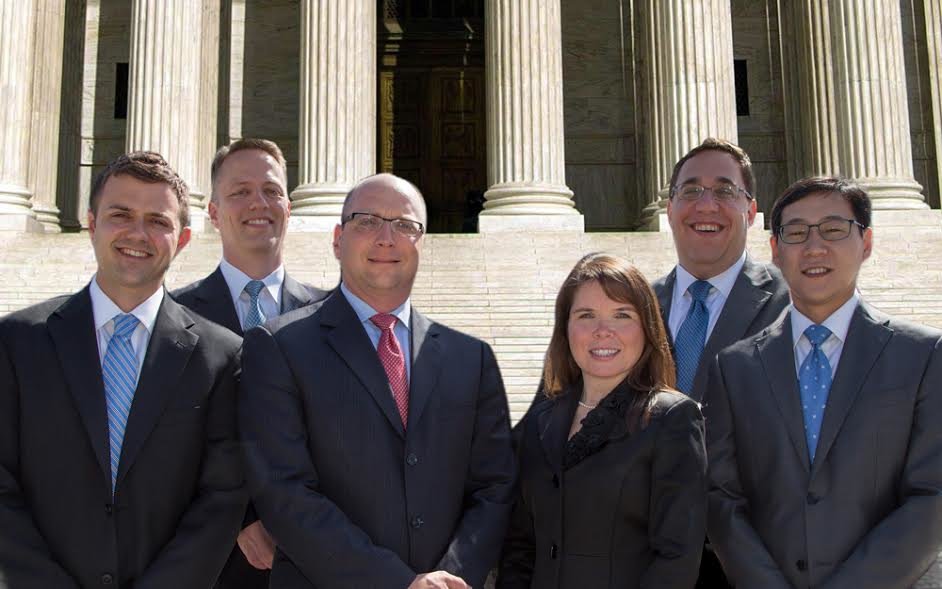
Here’s Why Lawyers Believe It Can Be Quite Challenging to Work in a big Law Firm

Aspiring lawyers want to work for big law firms, as they offer better salary packages, a challenging work environment, and great opportunities to grow. However, the following everyday challenges of working in a big law firm may make you opt for a smaller one. Here are some of them:
The Working Hours Are Long

Long working hours are usually seen as a necessity for the law firm to operate properly
Most legal firms don’t consider long hours at work an anomaly but expect to spend your nights at the office if you choose to work at a big firm. On average, a paralegal or lawyer working for a large-size law firm spends around 50-80 hours at the office every week.
The Environment is Very Competitive
Competition is a good thing, but to a certain extent. Most of the talent that filters through a large legal firm’s recruitment process is extremely competent, which makes the office environment a bit unfriendly and even hostile because everyone is fighting for the same promotions, assignments, and profit shares. Expect your colleagues to help you out, but not when they end up putting their own work in jeopardy.
High Quotas for Billing
Big legal firms have become infamous for imposing billable hour quotas that are too high to fulfill by employees. Typically, a quota is set between the 2000-2200 hours/year range, which means 42 hours per week. Now, considering how some non-billable activities are to be performed as well, such as marketing or administrative, in order to bill 42 hours an employee must work more than 60 hours a week.

It is much easier to reach the top of the hierarchy if you are part of a small firm, because there are fewer roadblocks in your way compared to large-scale firms such as a smaller chain of command.
Employers Have High Expectations
Since admission to big legal firms is highly competitive, and the salary package offered is above the market rate, it is generally expected that employees of the firm will produce a very high quality work and adhere to high standards of competence.
The Working Hours are Irregular
It is not uncommon for people working in large-scale law firms to work on the weekends or late at night. With a task-oriented approach in mind, law firm employees usually don’t stop working until their current task is done and dusted. This is true for high-stake projects, such as litigation, commercial real estate, and mergers and acquisitions, as the amount of work needed to complete these projects successfully requires employees to work during off-hours.
There are Many Roles for Mundane Tasks
You’ve got to start from somewhere, right? New employees in large legal firms are handed mundane responsibilities, such as reviewing documents, checking citations, research on multiple jurisdictions, while senior lawyers get to experience the court room drama.
Get Used to Traveling Overnight
Working for a large legal firm means that some of the clientele is international. This means lots of overnight traveling, after all, who needs sleep right?
The Learning Curve is Steeper Than You Think
Large law firms handle legal cases which are much more complex compared to those being handled by smaller firms, and that is why the learning curve of working in a large firm is much steeper.
There are Stringent Requirements to Entry
There are two ways you can attract the attention of a large-scale law firm. First, they look at experience, and second, they look at education. To get into the top law firms, applicants must have gotten a law degree from a top-tier law school. Even paralegals who work in big law firms have at least a degree of four years, a certification to practice law, and law-oriented work experience.

The structure of big law firms is one of compartmentalization, whereby lawyers as well as paralegals are specialized
The Existence of Bureaucracy
This is true for all big firms, as the complex tiers of management are too difficult to navigate by employees. You may find yourself working for years without ever getting a promotion.
The Atmosphere is Very Formal
Generally, the atmosphere is more strict and serious compared to other firms, there is a strict dress code to be followed, and the culture is quite conservative.
Contact with Clients is Limited
Especially when you are a new associate, there is a rare chance that you will get to meet a firm client in your current role because you are too busy working on routine research or reviewing the pile of documents.
More in Criminal Attorney
-
A Step-By-Step Guide to Becoming a Real Estate Lawyer
A real estate lawyer specializes in legal matters related to property, from transactions to disputes. They ensure legality in real estate...
December 3, 2023 -
What Is Asylum & How Does It Work?
At its core, asylum is a protection granted to foreign nationals in a country because they have suffered persecution or have...
November 26, 2023 -
6 Reasons Why Sentencing Is Any Judge’s Toughest Assignment
When you picture a judge, you might imagine a stern figure in black robes, gavel in hand, delivering verdicts with unwavering...
November 14, 2023 -
Carrie Underwood Sued for NBC Sunday Night Football’s “Game On”
It is almost ritualistic. As the weekend winds down and Sunday evening approaches, millions across America gear up for a night...
November 12, 2023 -
Why Lawyers’ Productivity Has Increased in Modern Times
Remember the old days when your image of a lawyer might have been drawn straight out of an episode of “Matlock”...
November 5, 2023 -
Paying Down Debts Using Debt Relief Tactics
Debt is like that lingering headache that never seems to go away, no matter how much aspirin you pop. But there...
October 29, 2023 -
Pro Se: Your Right to Represent Yourself WITHOUT an Attorney
The legal system is complex and so, more often than not, people hire a professional attorney to navigate the legal system....
October 21, 2023 -
The Craziest, Most Expensive Hollywood Divorces of All Time
Hollywood is the land of glitz, glamour, and romance – until it is not. Over the years, we have seen our...
October 13, 2023 -
How Was Life as a Lawyer in Ancient Rome?
The Late Roman Republic was a period chock-full of political drama, rampant corruption, and the rise and fall of powerful figures....
October 8, 2023














